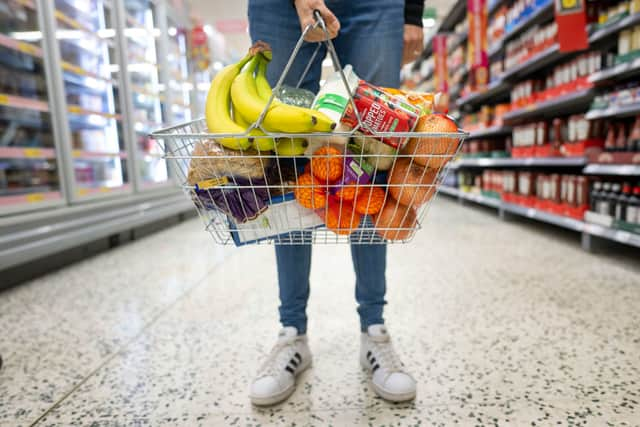UK Supermarket Price Rises Hit Record High in May: Coffee, Chocolate, and Non-Food Goods Drive Inflation
The UK supermarket price rises reached a new high in the year leading up to May, primarily driven by the soaring costs of coffee, chocolate, and non-food goods. According to the British Retail Consortium (BRC) and NielsenIQ, the overall inflation rate in grocers reached 9%.
While fresh food prices saw a marginal decline, commodities like coffee and cocoa experienced significant jumps.
The government is currently in talks regarding the possibility of requesting supermarkets to voluntarily cap prices on essential food items to alleviate the burden of living costs.
However, the BRC has dismissed the idea of caps, emphasizing the need to focus on reducing red tape. And allocating resources to maintain low prices, rather than resorting to 1970s-style price controls.
The figures provided by the BRC and NielsenIQ, cover the week between 1st and 6th May. Indicate that overall food inflation slightly decreased from 15.7% in the year leading up to April to 15.4%. Despite the decline, this remains the second-highest rate of food inflation on record.
While supermarkets offered “heavy discounts” on non-food items like footwear, books, and home entertainment.
The pace of price rises for such goods grew from 5.5% in April to 5.8% in May. As reported by Helen Dickinson, Chief Executive of the BRC.
The price rises in fresh produce showed a slowdown, decreasing from 17.8% to 17.2% in May. However, the cost of a pint of milk, despite a 5p reduction implemented by supermarkets in April. Remains nearly double the pre-Covid prices in March 2020.
Ambient foods, which can be stored at room temperature, witnessed a surge in price growth from 12.9% to 13.1% in the year leading up to May, marking the fastest increase on record, according to the BRC and NielsenIQ.
Factors Contributing to UK Supermarket Price Rises

Factors such as high global costs for commodities like chocolate and coffee have contributed to the UK supermarket price rises.
Additional influences include rising energy prices following the easing of Covid-related lockdowns, sanctions affecting major oil and gas producer Russia, and disruptions in grain exports due to the war in Ukraine, known as the breadbasket of Europe.
While the headline rate of inflation fell to 8.7% in April, the first time it dropped below 10% since August, grocery price rises remained near a 45-year high.
The Bank of England’s target rate of inflation is 2%, and the current rate is more than four times that.
Speculations arise that interest rates may increase to 5.5% by the end of the year due to these higher-than-expected figures.
Despite wholesale gas prices starting to decline, retailers explain that it takes time for falling production costs to be reflected on supermarket shelves due to long-term contracts with food producers.
However, recent price cuts in fresh foods indicate a potential slowdown in inflation, particularly in the competitive food retail sector.
In summary, UK supermarket price rises reached a record high in May, primarily driven by increased costs of coffee, chocolate, and non-food goods.
The government explores voluntary price caps, yet the BRC advocates for reducing red tape instead.
Inflation rates for food and non-food items fluctuate due to global commodity costs, sanctions, disruptions in grain exports, and adverse weather conditions.
While concerns about inflation persist, there are signs of potential price slowdowns in specific categories, providing hope for consumers.





